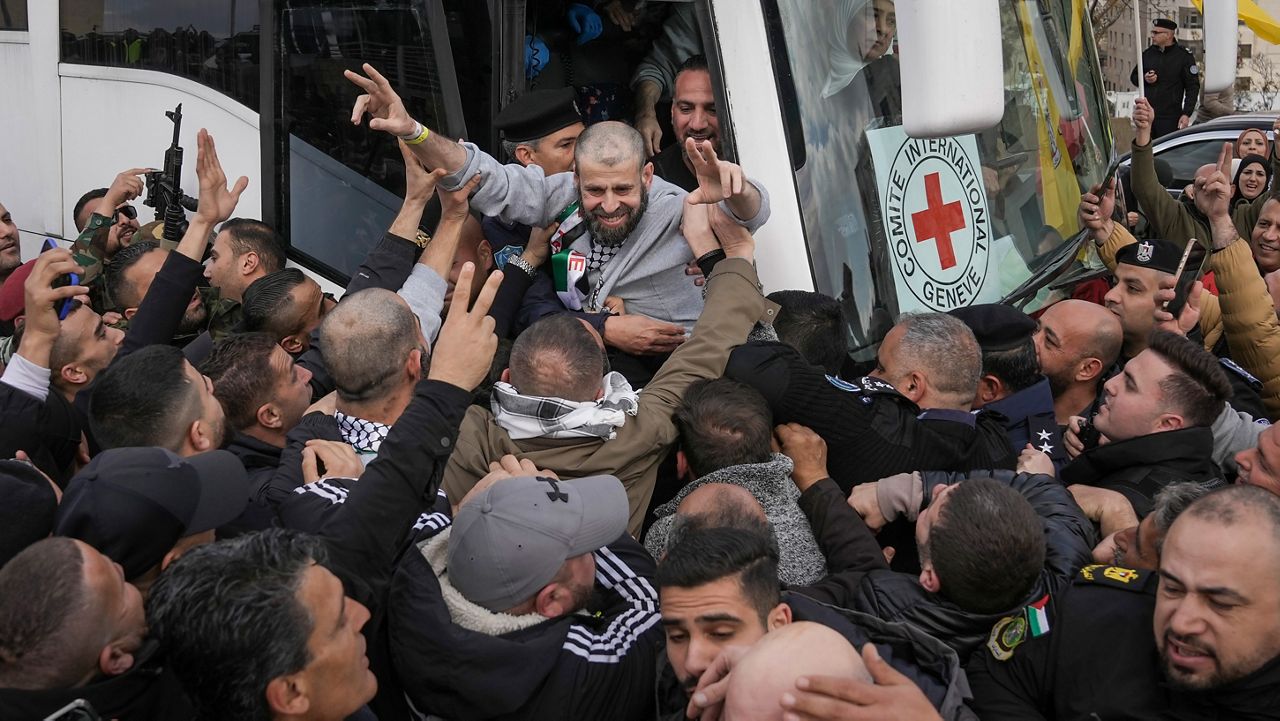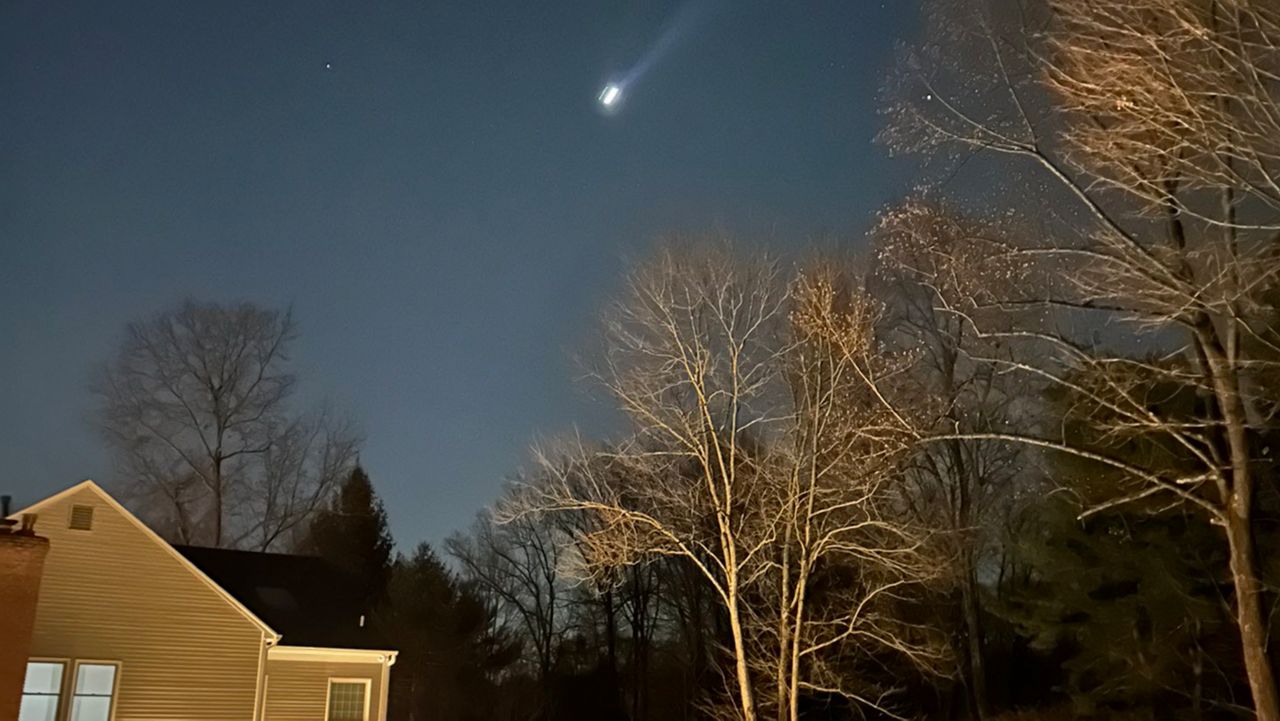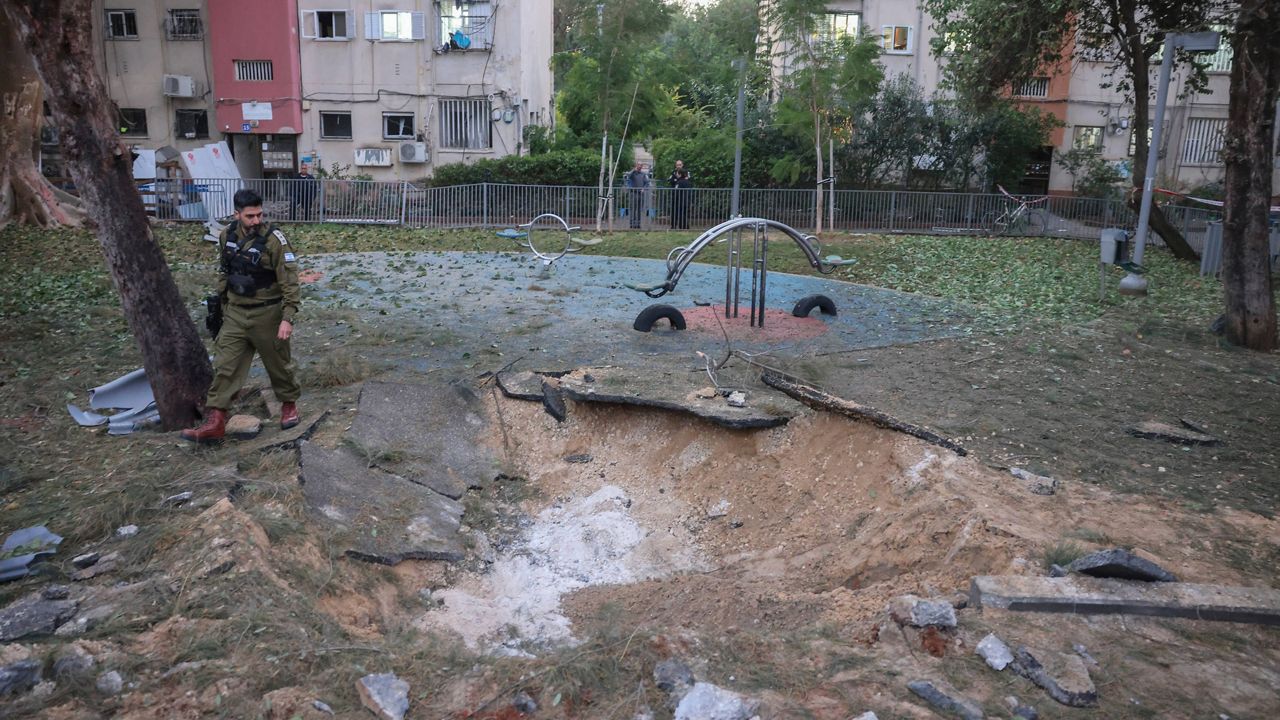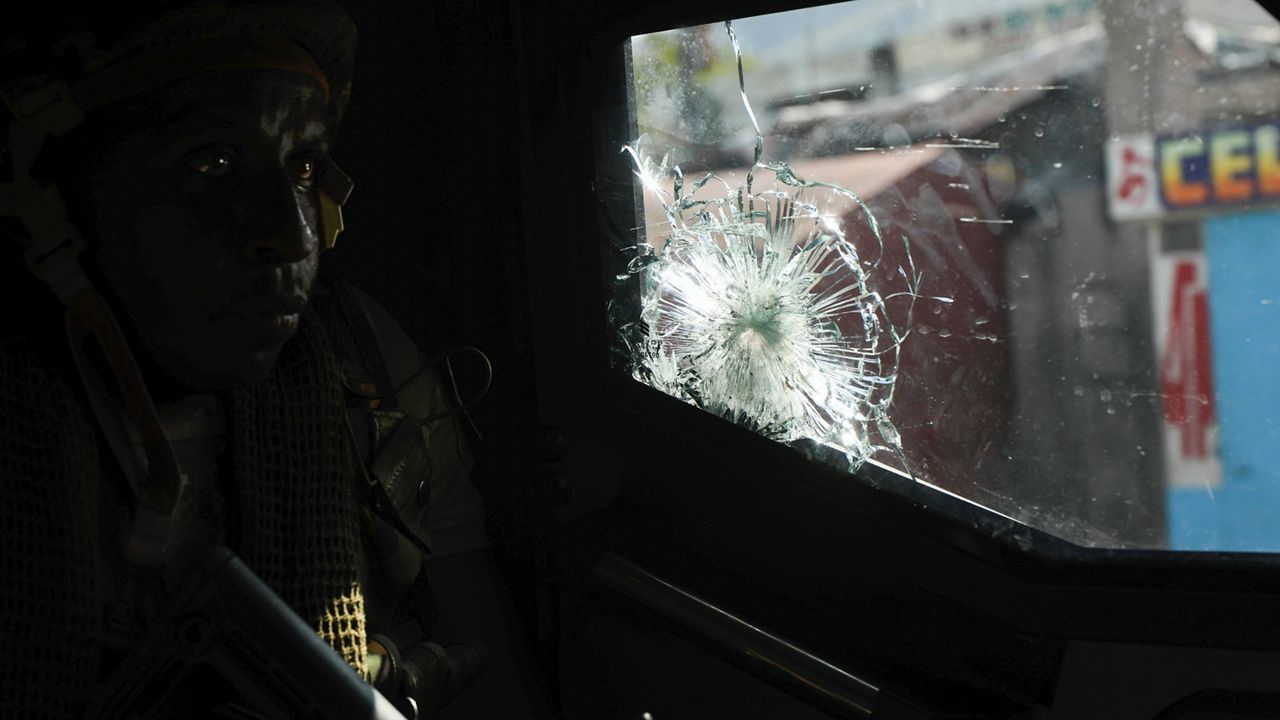CINCINNATI — Just 30 kilometers from the Russian border, locals in support of an independent Ukraine are acutely aware of their precarious position as tensions turned to violence Thursday. The city is one of many reporting fires caused by the Russian military.
Russia officials call it a "special military operation" as part of a peacekeeping mission. The White House and world leaders call it an invasion. Meanwhile, some natives from Ukraine’s second-largest city are hoping for support from an Ohio ally, Kharkiv’s sister city, Cincinnati.
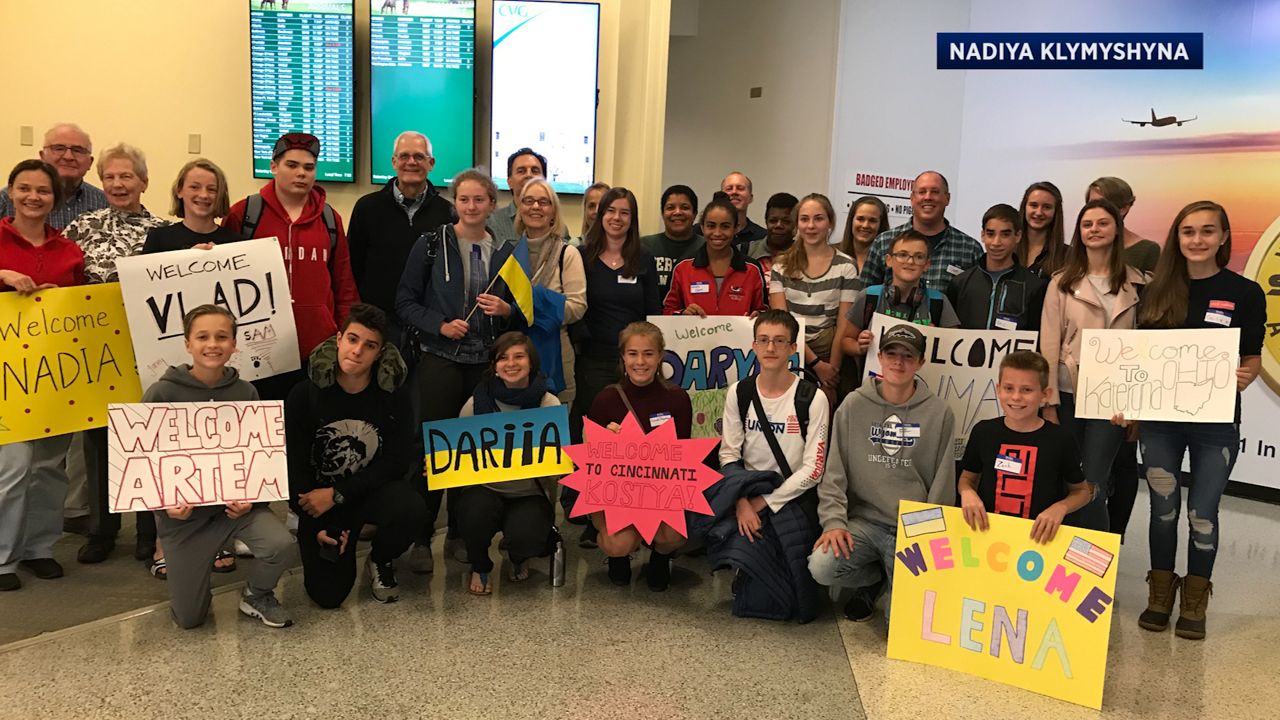
Through the sister city partnership, teacher Nadia Klymyshyna has visited Cincinnati several times, often bringing Ukrainian students hoping to learn about the U.S. culture and practice their English.
“We felt so welcomed,” she said of her most recent trip in 2019.
Recently though, she said most of her conversations with Cincinnatians have been about their growing concerns for her safety and the welfare of her city.
“How are you there? We think about you,” she said, summarizing the messages. “News is disturbing. Are you OK?”
Klymyshyna said there’s not a simple answer. Before Thursday, daily life was unchanged, though there was a constant feeling of tension across the city.
“The disturbing part of the day is just wake up, check the news, breathe in, breathe out, hope for the best and go to work,” she said.
On Cincinnati's end, Bob Herring, the president of the Cincinnati-Kharkiv Sister City Partnership, said it’s been disheartening to watch from afar as the news unfolds so close to a city he’s grown to love.
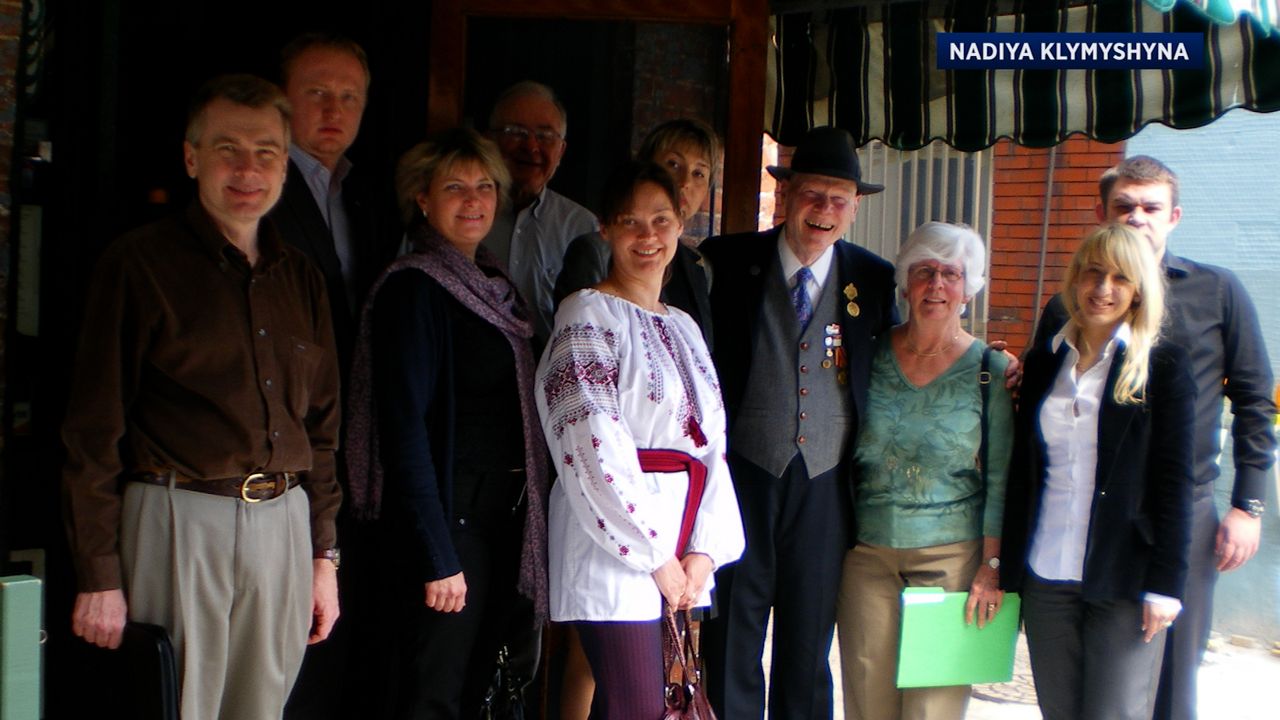
“I’ve been in not quite daily contact but consistently over the last two weeks but in touch with folks over there to get a feeling for what they’re thinking or feeling,” he said.
A former teacher himself, Herring has been a part of the partnership nearly since its beginning and has taken many trips to Kharkiv.
“It’s a lot like Cincinnati,” he said. “It’s a manufacturing city, on a river with a lot of places of higher education and medical facilities.”
As part of the Sister Cities International program, Cincinnati was looking for a peer city in the then Soviet Union to begin a campaign of international exchange and friendship. It found a match in Kharkiv in 1989.
Valeriy Bakumenko, a principal of the Ukrainian-British College and a founding member of the sister city partnership, said he learned early on they could count on Cincinnati for support during the unsettled years at the beginning of Ukraine’s independence.
“It was 1989, the empire collapsed. People are very stressed and disappointed,” he said. "Then this relationship with Cincinnati brought some perspective and hope for the light at the end of the tunnel.”
Over the next 30 years, Cincinnati and Kharkiv set up partnerships to collaborate on art exhibitions, perform in each other’s theaters and send representatives to each other’s municipal offices to learn about local governing.
“Whether it’s been fun projects like the marathon and baseball, or more serious projects like how the media covers elections, law enforcement, police-community relationships (or) services for the homeless for children in poverty, there’s been a lot of collaboration,” Herring said.
If travel remains safe and open, there’s a delegation from Kharkiv expected to arrive in Cincinnati in mid-March to visit with municipal leaders.
“As of Tuesday, that remains on track,” Herring said.
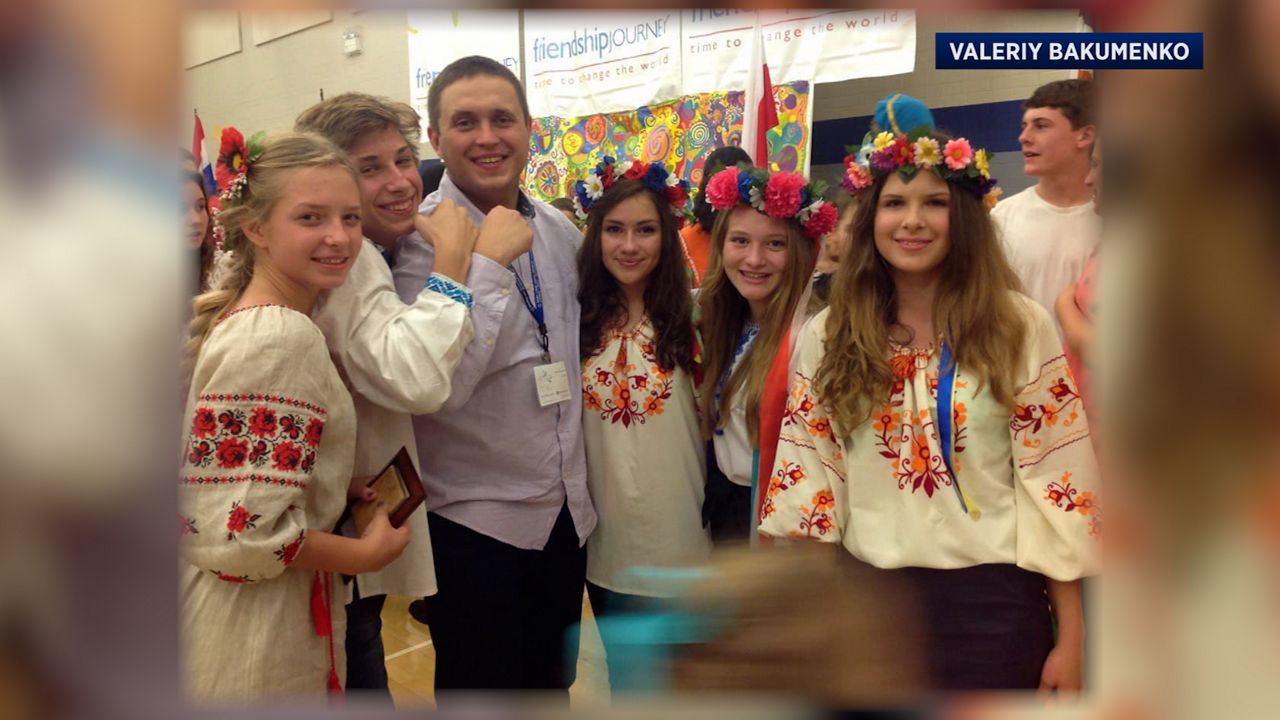
When asked Wednesday whether he believed Russia would invade Ukraine, Bakumenko said the invasion already started years before.
“Russia never left,” he said. “This is an escalation. We have been living with this stress and tension since 2014.”
That was the year Russia annexed Crimea and the pro-Russia separatists took control of the Donbas region to the east of Kharkiv. Then, Kharkiv saw its own pro-Russian unrest that eventually dissipated after several months.
“Having that experience in 2014, we know what to do and how to act in an emergency,” he said.
Klymyshyna is hoping it won’t come to that. Though the city has Russian ties and much of the population learned Russian as a first language, Klymyshyna said there’s a lot of vocal opposition from younger Ukrainians who want to see Ukrainian identities and culture thrive.
“I love my country,” she said. “I’m very happy that I’m Ukrainian.”
Klymyshyna and Bakumenko were hopeful the U.S. sanctions and other western interventions will dissuade further Russian interference in Ukraine, but as the violence escalates, they are hoping for further action. They said they're also looking toward their sister city for what they call moral support.
“The attention that international friends and countries and governments give us, it’s like a light in this dark street,” Klymyshyna said. “It helps us to be seen, to be supported, to be heard.”
Bakumenko said the attention and the opportunities to speak about his city and his country are an important way to show the world that many Ukrainians are willing to fight for their communities, while also showing Russia that the world is watching.
Meanwhile, Herring wants Cincinnati and the country to recognize Kharkiv’s future is not simply about one city.
“It could be the first domino,” he said. “If Ukraine falls in that sense and becomes under the domination of Russia, then what happens to Estonia and Latvia and Lithuania, which were once under the Soviet Union?”
Then he fears what message would that send to any other country with its eyes set on another’s borders.







